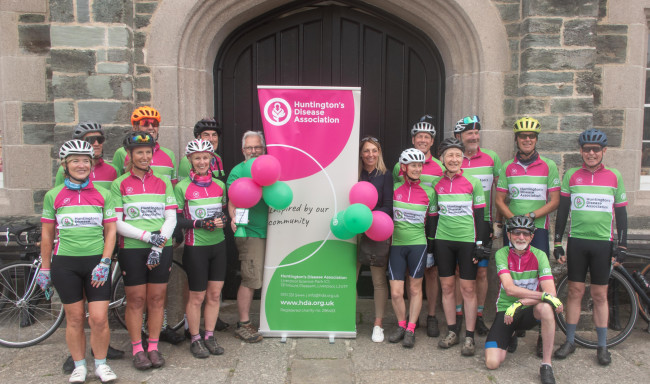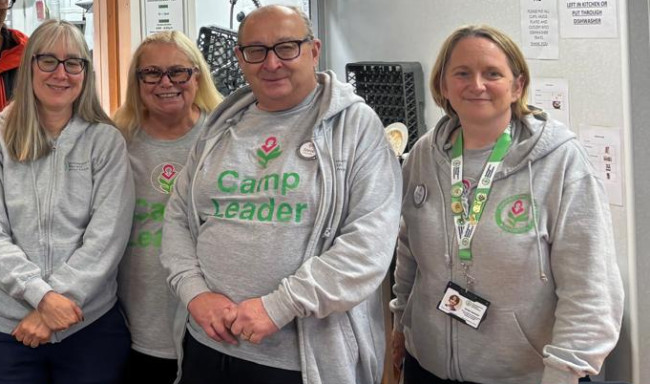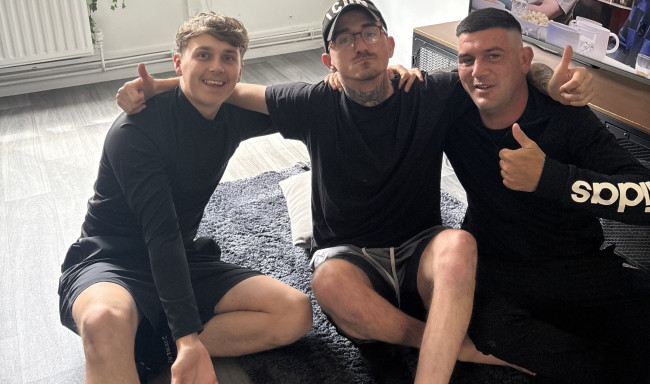Chris shares his Huntington's journey and talks about the impact it's had on his life and how he worked hard to manage the diagnosis.
This blog has a trigger warning as it discusses mental health and suicide.
I was unaware of Huntington’s disease until my grandmother on my mum’s side was in hospital from yet another fall, she was a stubborn lady in her 70s. She had developed a twitch where her head moved from side to side, it was only minor to begin with but over the years the movement was more rigid and sharp. She was back in for another fall and a doctor in a passing comment said it was Huntington’s disease after seeing her other symptoms. Unfortunately, my nan passed away about six months later from pneumonia caused by the disease.
Once my nan was diagnosed my mother had a 50% chance of having Huntington’s, they tested this by testing the CAG repeat. At this point, because Mum wasn’t tested, myself and my brother had a 25% chance of having the faulty gene, but once Mum tested positive, my chances increased to 50%.
Before they even considered me for testing, I needed to do a round of therapy by a genetic counsellor to ensure I had a support network and was fully aware of what the result would mean.
Once I found out I did have a belly flop into depression and was constantly crying. I cried for myself and my daughter because now she has a 50% chance of developing it, thoughts of suicide crossed my mind but I cannot leave my daughter to face the challenges of Huntington’s alone. At the time I was serving in an army unit who were quite understanding and I had time to reflect and try to come to terms with it. But as a typical human, I just buried it in my mind hoping it would never darken my day again.
I started getting involved in all the research they would have me for, so I got involved in spinal taps to get fluid and yearly reviews where they test brain activity. Job-wise I went on an op tour and moved to a new army unit, I also developed a relationship with my current partner, So I was quite happy plodding along.
It was a good plan for the short term but was doomed to fail. Two years on from the knowledge of my faulty gene, a thought occurred to me “I think it would help me with acceptance if I knew more about my new situation” Little did I know this was my undoing. Before this point I had only ever read about Huntington’s but never seen it in all its glory, my nan was diagnosed and then died within a short time. So, I never truly knew the condition.
Every few years there is a Huntington’s get-together at the Queen Elizabeth where Huntington’s patients and the Huntington’s disease team give presentations on what's happening in the Huntington’s world of research and drugs etc. I absorbed so much and learned so much in such a short space of time which was good. The hard part was the audience was full of lots of people from the community ranging from early onset to end stages. The emotions I felt after this floored me. I tried my best to keep it together and speak to everyone to try to gauge them as people but all I saw was my future.
From this point my mental state unravelled. I was a strong-minded soldier who suddenly became a crying mess that struggled to keep my emotions in check. I just fell apart. Over the next few years, I slowly started to put myself back together with the help of my partner and private sessions working on ACT (acceptance and commitment therapy) but it is a slow road to recovery. I have also been seeking psychotherapy help from local mental health services and so far it has had a really positive outcome. I am currently on mood stabilisers from the Army medical service to help me keep my emotions in check.
My road to return to normality is long and I might not fully be able to come back from this, but my hope is that as you read this you realise there is so much support out there no matter the situation. Mental resilience is paramount and any support you are offered please fully lean into it, open discussions help not only you but can raise awareness within the workplace which will enable others to feel they can do the same. Please remember if you need help ask there is no shame in needing and asking for help.
I would recommend the Huntington’s Disease Association website is the best source for information, and you will be able to have a better understanding if you come across Huntington’s disease.
Huntington's Disease Awareness Month - In The Family
This year's awareness month campaign we are sharing the stories of families affected by Huntington's disease and asking them what they wish others knew about the disease. We are then asking the general public to take five minutes to learn some of the facts about Huntington's disease.




